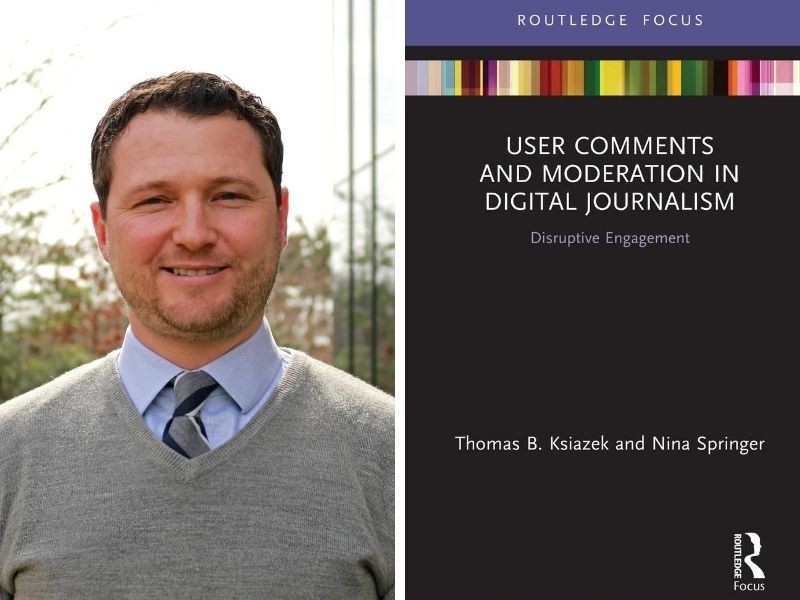Disruptive or Productive: New Book Explores User Comments Impact on Digital Journalism
Communication professor Thomas Ksiazek, PhD, addresses this timely debate in his new book User Comments and Moderation in Digital Journalism: Disruptive Engagement

In a 24-hour news cycle with rapidly evolving technologies, there’s no denying the disruptions happening in the field of journalism—including those that user comments have had and continue to have on digital journalism. Thomas Ksiazek, PhD, associate professor of Communications in Villanova University’s College of Liberal Arts and Sciences, explores this in his new book, User Comments and Moderation in Digital Journalism: Disruptive Engagement (Routledge, 2020).
User comments and moderation are described as “disruptive” because they have disturbed the previously accepted means of creating value in news and often invoke a reactionary response. Since they can interfere with news delivery, a growing number of news organizations have abandoned commenting features altogether. At the same time, news organizations’ moderation practices can be disruptive to free speech in user discussions. Dr. Ksiazek asserts comment features must be reexamined to achieve the desired level of productivity for which they were originally designed.
In his book, Dr. Ksiazek proposes an Integrated Comment Moderation Model to mitigate disruptions through collaborative moderation—combining user-driven moderation support, organizational policies and procedures, and innovative automated solutions.
“By employing more complex and multifaceted moderation, news organizations can work to reduce incivility and encourage more productive commentary,” says Dr. Ksiazek. “Integrating users as partners can work to break down the power structures that are imposed on users through more traditional organizationally driven moderation techniques, and in doing so, an integrated model offers hope for realizing the ideals of truly participatory journalism models."
In the book, he evaluates how comment sections could provide an outlet for engagement in a digital, public sphere by conceptualizing virtual engagement as a manifestation of public deliberation—thus supporting the notion that organizations could create room for productive conversation in digital journalism.
Dr. Ksiazek holds a doctorate from Northwestern University. His latest research includes new forms of user engagement with the news, implications of audience behavior for society and the field of journalism, patterns of cross-platform media use, and the application of network analysis on the consumption and production of media.
About Villanova University’s College of Liberal Arts and Sciences: Since its founding in 1842, Villanova University’s College of Liberal Arts and Sciences has cultivated knowledge, understanding and intellectual courage for a purposeful life in a challenging and changing world. With more than 40 majors across the humanities, social sciences and natural sciences, it is the oldest and largest of Villanova’s colleges, serving more than 4,500 undergraduate and graduate students each year. The College is committed to a teacher-scholar model, offering outstanding undergraduate and graduate research opportunities and a rigorous core curriculum that prepares students to become critical thinkers, strong communicators and ethical leaders with a truly global perspective.
